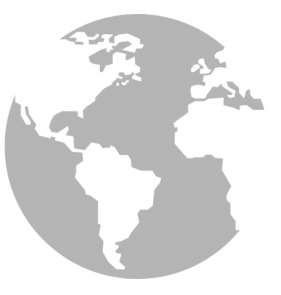IN THE CHARTS
TRACKS
VIDEOS
by De La Crau
PHOTOS
Profile created by
ABOUT
Starting with a song that rips open the skies, to which the double bass, the percussions, and the ecstatic outburst of the mandola respond in power and poetry, the three musicians of De La Crau have imagined the soundtrack of their journey in the Crau. This abandoned sea lined with factories, the last steppe of Western Europe, evokes landscapes that a Hopper or a Walker Evans would have made American effortlessly.
Under the pen of a Sam Karpienia inspired as ever, taken to its peak by the dark and vigorous bow of Manu Reymond and the colorful set of Thomas Lippens, they are now exploring a furrow dug twenty years ago not far from the factories, like a wound that they will continue to heal for eternity.
De La Crau, a sober universe, with contained power, melodies crossed by poetry with a thousand faces. Sam Karpienia sings a rough Provençal off-ground distorted by looping riffs of electric guitars. Thomas Lippens with tribal percussions of scrapped woods hammering the trance. Manu Reymond on the double bass makes serious bowed ostinatos creak and bite.
De La Crau is the new formation of Sam Karpienia, one of the great voices who have emerged in Marseille over the past two decades. First with Gacha Empega and its polyphonies, then within the cult group Dupain by merging Occitan trad, rock, and contemporary music.
Sam Karpienia never ceases to be reborn and gives us a real experience at each of his stage performances. The artist and poet is always closer to his emotions, delivering concerts of rare intensity. The singer, composer, and mandola player grew up in Port-de-Bouc. From Kanjar'oc to Gacha Empega (with Manu Théron), via Dupain and Forabandit (group mixing Provençal and Anatolian songs), he has transformed Marseille music, infusing it with poetic intensity, giving it a unique voice.
His singing refers to the intoxication of rebetiko as well as flamenco fever or, of course, to the joyful insolence of this new Provençal song of which he is a pillar. But the assertive Occitan remembers the West, and the energy of his music approaches that of rock. His music is therefore of traditional inspiration but resolutely turned towards contemporary creation.
Tambourinaire, percussionist, and drummer, Thomas Lippens studied the tambourine in Naples; he builds and invents his own instruments. He travels as much in the repertoire of traditional Mediterranean music as in that of improvised music. It is in the cultural broth of Marseille that he immerses himself in Occitan songs, balètis, and dance music from here and elsewhere. In Marseille, a city of mixture par excellence, farandoles and tarantellas contaminate each other, Occitan polyphony feeds on the polyrhythm of the Maghreb, and the Corsican paghiella is not far away. His drums have made him travel for a few years inside and outside of what is called "tradition" within various traditional music projects in the south of France, but also within the Kreiz Breiz Académie in Brittany with Erik Marchand.
Manu Reymond has played with the group Poum Tchack and collaborated on various projects (BabX, Nathalia M King, bal folk…).
The album was released on February 11, 2022.
Recorded in Marseille at Studio Bovis, Denger Studio, and Studio Le Puits Sonore between July 2018 and June 2021.
Sound recording: Thomas Lippens, Gérald Kuentz, and Nicolas Dick.
Le Puits Sonore studio mixing: Nicolas Dick except "Temperi" and "L'Infinitat" mixed by Mike Aube at Sugar Shack Studio.
Mastering: Nicolas Dick
All De La Crau compositions. Lyrics by Sam Karpienia except "L'Amistat" by Marius Revelly. Photos: Franck Pourcel
Graphic design, illustrations: Matteo Penza
Production: Compagnie du Lamparo / Kermes prod / Pagans
OTHER LINKS





